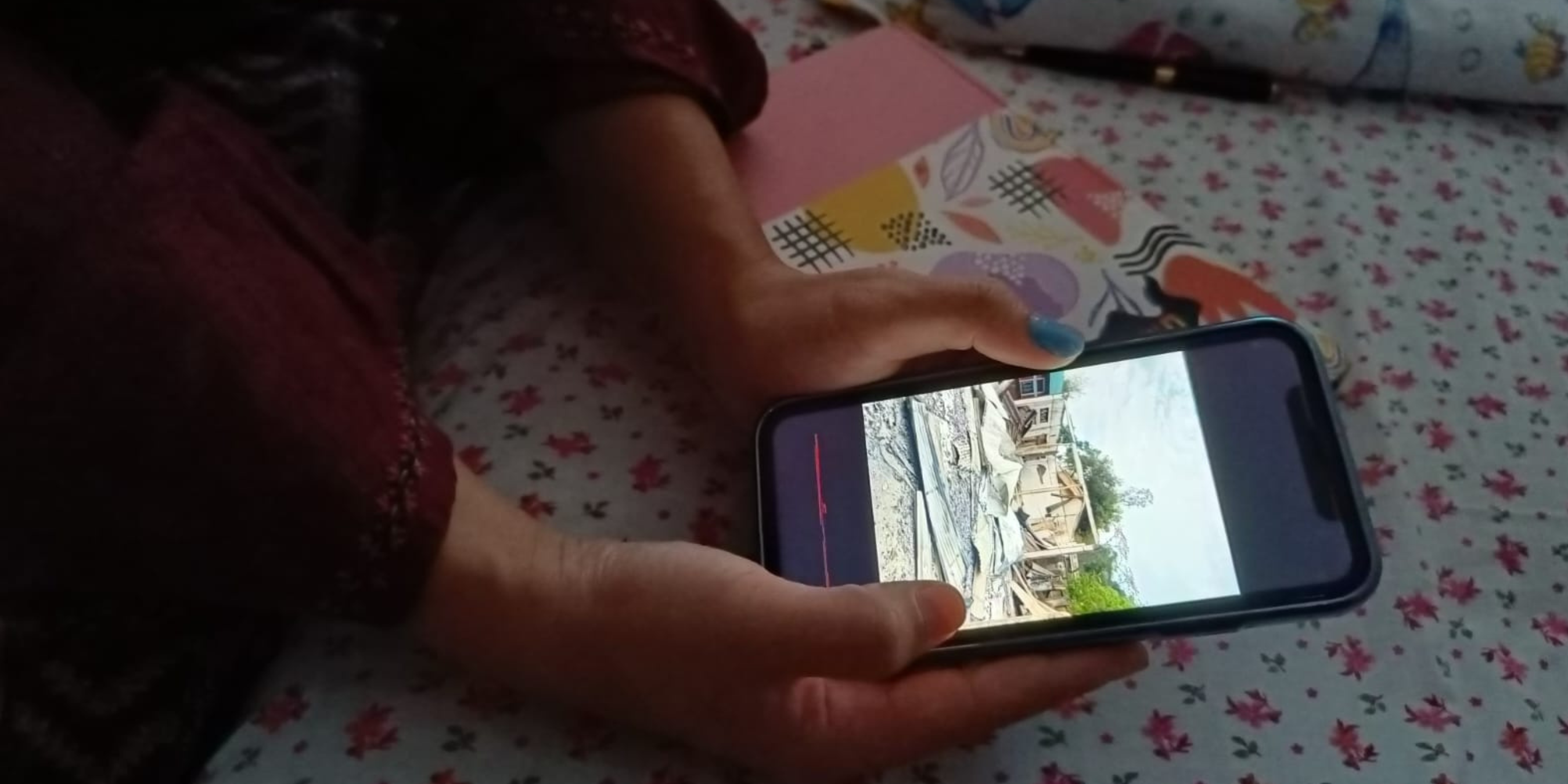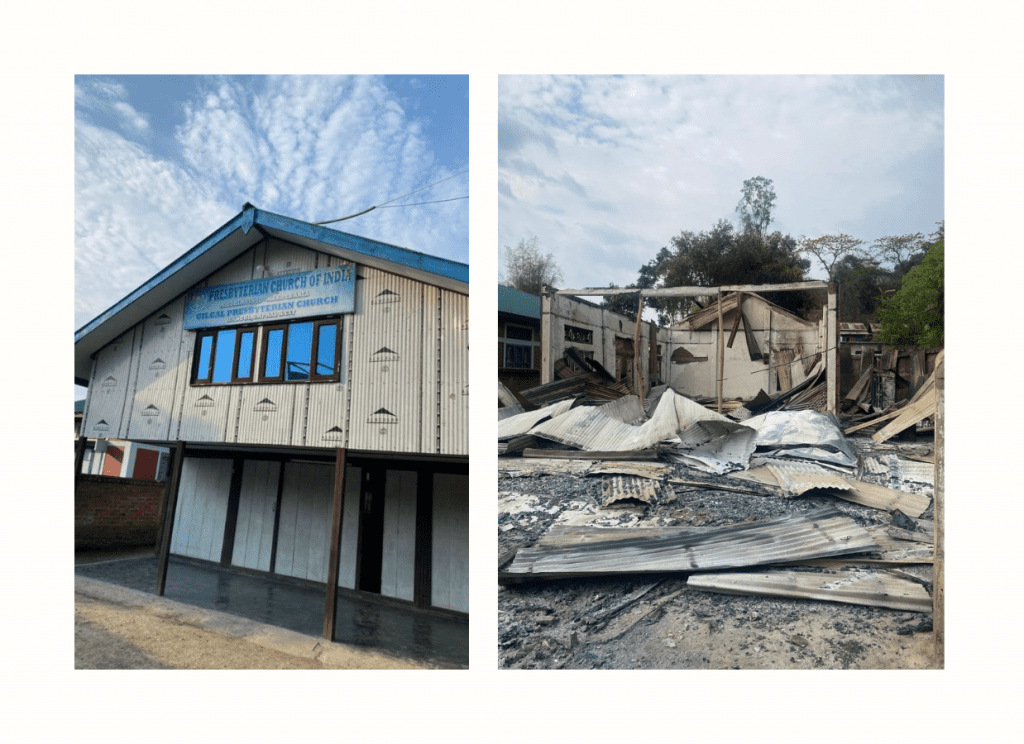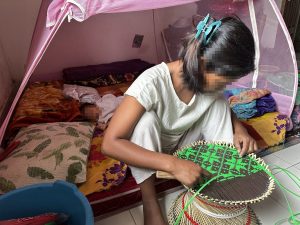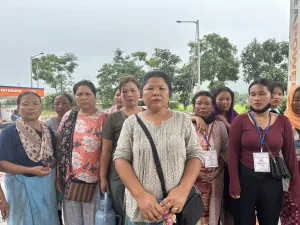Catherine, 23, who wants to be identified only by her first name, is busy looking for a job in Delhi to support her family. A Master’s student of Political Science at Imphal’s Manipur University, Catherine was just a month away from taking her final semester exam.
“I was so close to finishing my degree. But now I can’t. The government held examinations even though hundreds of students from the Kuki-Zo community weren’t there in the state. It feels like all of my education went to waste,” she says.
Catherine now lives with her mother and brother in a single room flat in Munirka and is under pressure to find a job. “We can barely afford the rent as we have lost all our savings,” she says.
On the night of May 3, 2023, when she saw a mob of rioters outside her home in Imphal’s Mantripukhri area, Catherine had grabbed her identity documents and her diabetic mother’s medicines to escape with her family. The men were setting her neighbours’ homes on fire.
The police, she says, did nothing to help. “When I first saw the mob, I also saw policemen from the nearby Heingang Police Station in the locality. I felt relieved. But then I heard them tell the mob: ‘Do what you want,’” Catherine recounts. “And I, my brother and mother ran for our lives.”
Recently, a video had surfaced of two women from the Kuki-Zo community being paraded naked and later gang-raped in Manipur’s Kangpokpi district by a mob of Metei men. Survivor testimonies reveal that the police were present when it happened, and that they were the ones who drove the women towards the mob. The Supreme Court is currently hearing a batch of petitions concerning the sexual violence in Manipur.
Catherine and her family ran through paddy fields to get to the nearest Assam Rifles refugee camp for displaced people within Manipur. “There were at least 10,000 people gathered in the camp,” she says. For the next 11 days, Catherine stayed in a CRPF camp, after which she and her family took a flight to Guwahati, where they spent another week in a refugee camp.
Later, the family travelled to Delhi and stayed in a refugee camp in Palam for one more week. Her house in Imphal along with her ancestral house in the Khuangmun village of Churachandpur have been razed by mobs.
The ongoing conflict in the state stems from decades long contestation over land and resources. The Hindu-majority Meiteis who make up 53% of the state’s 2.85 million population occupy only 10% of its land, according to the last census in 2011. The Christian Kukis, and other tribes, constitute 30% of the population and are spread out across the poorer hill areas. The Kukis have long been recognised as a Scheduled Tribe under Indian law.
While the Metei community also enjoys certain benefits on account of being recognised as a “socially and economically backward class”, they have been demanding the ST status instead, arguing that it is necessary to preserve their community land and “save its ancestral land, tradition, culture, and language”. The demand has gained traction in recent years.
Land in the hill areas is protected under Article 371C of the Constitution that bars non-tribals from owning it. The minority community fears that Meiteis, who already enjoy the demographic and political advantage as well as benefits associated with the SC, OBC or Economically Weaker Section status, would acquire hill lands if they are given ST status. This, they believe, would further marginalise them in the state.






